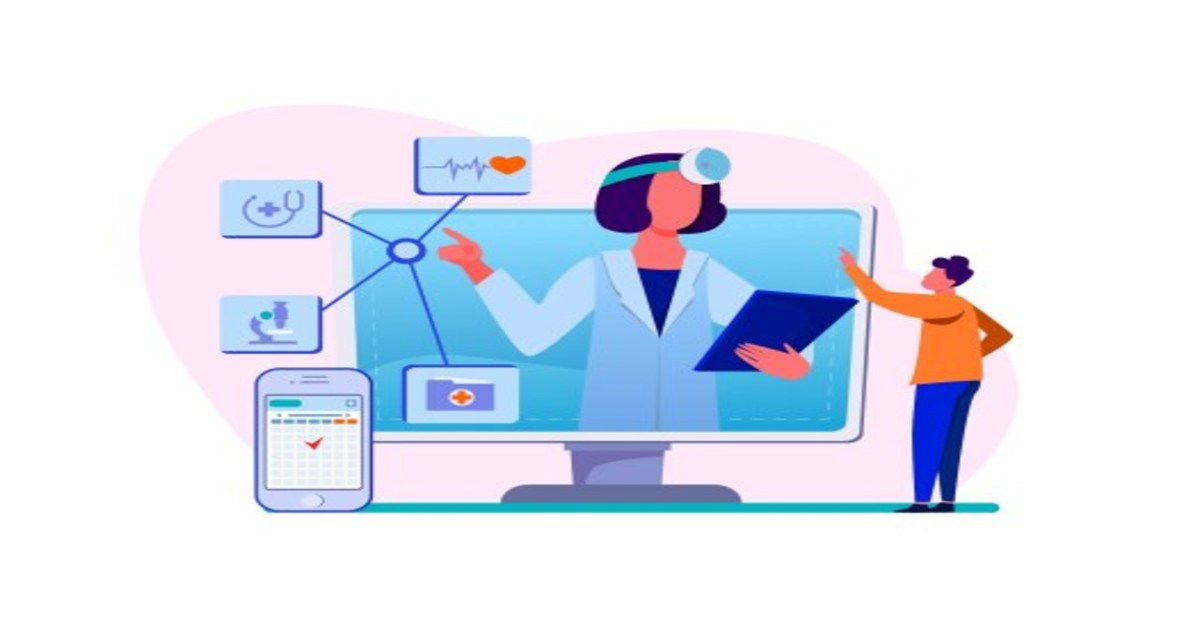
Health Technology, Digital Healthcare
Article | August 21, 2023
It’s no secret that the working world has changed these past few years, but employees have also undergone a lot of personal transformation due to these shifts. Struggles with health, home life, or personal issues can make it hard for them to work. Burnout is increasing worldwide, with 40% of desk-job workers feeling mentally distanced from work, depleted of energy, and increased negativity. Younger workers are already becoming drained by work life, which could spell trouble for future generations of employees.
Despite these challenges, the workplace is the best place to help staff improve their wellness, especially since they spend most of their time working or in the office. Wellness programs can be implemented to help employees feel rejuvenated and respected, which will boost their performance at work. Here are some examples of programs your workers might enjoy
Weight Management Programs
The idea of a weight management program at work may seem like something employees could be offended by, but it can help workers build healthy habits and assess their lifestyle to help them achieve better health. Employees can learn to manage their diet better, leading to weight loss and a lowered risk of certain health conditions.
These programs can also identify the need for medical weight loss strategies. For employees struggling with pre-obesity—a complex disease influenced by several factors often out of an individual’s control—personalized lifestyle changes and FDA-approved medications can be recommended. With chronic weight issues, doctors can prescribe medications that can help produce an average of 15% weight loss, especially when individual biology makes doing so harder. Employees can look for the help they need for wellness and weight loss, which can help them feel cared for by the company. When workers are at their peak physically, they can enjoy a healthier lifestyle and will be more efficient at work.
Quit Smoking Programs
Smoking is usually a means for employees to reduce stress, but it can greatly impact their personal and professional lives. Smokers tend to be more absent or disengaged at work than non-smokers. Presenteeism at work is also associated with heavy smoking. Employees coming to work despite health issues can lead to subpar performances. This can cost workplaces a lot of money in lost productivity, and workers will also suffer from health consequences.
Smoking cessation programs can help employees reduce their tobacco consumption and quit smoking for better health and productivity. These programs can include counseling, suggesting smoking cessation products or nicotine replacement therapy, or other initiatives tailored to individuals. Your staff may need more motivation when trying to quit, so having more support and a community to confide in can help.
Mental Health Programs
Mental health in the workplace was largely ignored for many years, as many saw it as a personal issue. However, work can contribute significantly to employees’ mental health problems or exacerbate mental illnesses like anxiety and depression. Improving these conditions is vital to improving many aspects of life for employees. Workers will better enjoy work and perform well when they know they’re being supported. Mental health is also paramount to sustainable development and plays a significant role in transforming the world as a whole. Treating and monitoring mental wellness should be prioritized at work and beyond.
Though companies may not have the means to properly diagnose or treat workers’ mental illnesses, mental health programs can help give employees and managers the education and resources to help improve mental wellness. Education and training on mental health can aid people in spotting issues and having them addressed or equip people with the ability to provide proper support or encouragement. These programs can also help the business take the initiative and offer other resources to improve mental health. That can be through mental health sick leaves, adding napping or gaming areas to the office, or offering mental health apps or counseling in benefits packages. When your staff is appreciated and taken care of, it’ll improve their overall well-being and life at work and home.
Read More

Health Technology, Digital Healthcare
Article | September 8, 2023
The criteria of patient satisfaction have changed dramatically. The priority of your healthcare business is to provide patients the right treatment. But nowadays, you cannot excel in your service and win the hearts of the patients just by providing the right treatment. You will also have to focus on delivering a great patient experience. Thus, a comprehensive healthcare marketing strategy should be designed accordingly.
In this digital age, along with their healthcare requirements, people are already overwhelmed with all the necessary information they need regarding their work and life-related issues. This has turned them into customers, rather than just being patients. And has led them to want and expect more. According to a study done by McKinsey, people expect from healthcare companies the same way they expect from other non-healthcare companies. Your patients now expect:
• Your deliverance on their expectations
• Great customer service
• Great value
• To make their life easier with the service they get from you
They look for whether your healthcare services provide these benefits through online resources. A Kantar Health Report says that around 60% of millennials depend upon online information as the best resource for healthcare information. They also consider word-of-mouth referrals trustful. This makes it vital for you to put in place the right digital healthcare marketing strategies. It is necessary to avoid your prospects going to your competitors whenever they search for effective medical services online.
The need for a robust Healthcare Marketing Strategy
Creating an effective healthcare marketing strategy is part of the inbound marketing process. The strategy can include and utilize all the resources to bring in opportunities. The resources also can confront the threats that come your way to hinder your healthcare business. The resources can be in any form of original content such as articles, blog posts, podcasts, interviews on medical topics, informational videos, e-books, case studies, press releases, white papers, etc. These resources deal with threats and opportunities that are concerned with persuading prospects to come to you.
Healthcare marketing strategy is a vision statement. It lays down the healthcare marketing plan in detail for some time. It should include objectives and plans for exceeding the current performance of your particular healthcare business. It should talk about competition analysis, target marketing, budgets, marketing tactics, and SWOT analysis, which are essential elements of an effective healthcare marketing strategy. Having the right healthcare marketing strategy in place will help you increase patient inflow and lower your marketing budget, which increases your return on investment (ROI).
Benefits of Having an Effective Healthcare Marketing Strategy
The right healthcare marketing strategy focuses on two main things; bringing in more patients to your hospital or clinic and maximizing your ROI. ROI can be maximized by minimizing expenses on both inbound and outbound marketing strategies. It is called ROI based marketing plan or strategy.
There are many benefits to having an effective healthcare marketing strategy in place for your medical practices. They include anticipating and assessing threats and opportunities, prepare to make a road map to counter the threats in time effectively, and find out creative ways to enhance your outcome. Below are some of the other benefits of having a healthcare marketing strategy:
Goals and Objectives
A sound healthcare marketing strategy, as discussed earlier, helps you to understand what you are going to achieve in a scheduled time frame. This keeps you focused on your goals without getting diverted. Moreover, it provides you a clear picture of your business's growth and makes you aware of how far you can go with your business in the target market.
Operating Budgets
Healthcare marketing strategy helps you create a detailed operation budget in advance for your business. By knowing your expected future costs, expenses, and forecasted income over the year, you can make better plans for all the expected and unexpected challenges of your business.
Service Line Decisions
When you compare your result with your expected results, you will understand where it worked well and the areas you need to improve. By knowing the areas in which you failed, you can improve them and yield better results on the next run by improving your line of services.
Risk Management
In business, risk management includes forecasting and evaluating the financial risks and identifying solutions to minimize or eliminate their impact. A clear healthcare marketing strategy in place allows you to manage these aspects of your healthcare business efficiently.
Capital Planning
A marketing strategy provides you a clear idea of how to process your budgeting resources for your organization's future. It is possible with both short-term and long-term plans.
Developing an effective healthcare marketing strategy
Creating goals and defining objectives or benefits that you intend to achieve is the first step to the creation of a healthcare brand strategy. Once all these things are set, you may assess all the required and available resources. Then devise a final strategy on when and how to fulfill these goals.
Healthcare digital marketing is unique as it is the most cost-effective way to reach out to your most relevant prospect at the right time. It ensures thatyou reach your patients in the time of their need. Here is a step-by-step healthcare marketing strategy for you. It is designed keeping in mind all the aspects of your healthcare business, including your competitors and prospective patients.
Establish Your Target Customers
The first step starts with identifying the most relevant target market for you. A comprehensive online and offline research would help you with it. The research can be based on demographic, geographic, behavioral, and psychographic information.
Then concentrate on all the marketing resources you have, in order to attract relevant customers. Clarity about your target audience ensures you create the right content for the right people. It also adds to the efficiency and effectiveness of your digital healthcare strategy.
Study Your Competition
Your competitors also target the same audience. So, identify competitive influences and issues to have a proactive strategy and plan. It helps you stay ahead of your competition with your healthcare marketing strategy. Use internet, TV and Radio commercials, referrals, data analysis, billboards, or other media to research your competition.
Internal and External Evaluation
To evaluate your external and internal environment, conduct a SWOT analysis of your healthcare business. Thorough knowledge of your strengths, weaknesses, opportunities, and threats will make you determine how to use your resources for better results effectively.
Decide Your Long-term and Short-term Goals
Most businesses conceive their marketing plans and strategies for a year. However, the best healthcare marketing strategy is the one, which is aligned with both the long-term and short-term goals of your brand. Evaluating, prioritizing, and organizing various combinations of specific marketing tactics and strategies will suit you the best in pursuing your business goals.
Plan Your Marketing Budget
Protecting and generating sources of revenue is generally a significant concern in marketing. Creating a task budget and clear objectives to work towards realizing the exact goals and outcomes you expect from your business is very important. For this, you may have to specify your measurable and quantifiable goals. Define your marketing tactics and strategies, including advertising, brand development and enhancement, networking and public relations, etc.
You also have to evaluate profitability, launching plan, and marketing plan. Moreover, monitor and track closely to adjust tactics and strategies necessary for achieving, maintaining, or exceeding your expected profit level.
The best part of having an effective healthcare marketing strategy in place is that it makes you focus your energy and time on improving your healthcare practice. The digital marketing team will work according to the strategy for realizing both your long-term and short-term goals.
Doing all of it alone may be challenging. We, at Media 7, help healthcare companies, especially healthcare technology providers, with healthcare marketing strategies, which are proactive and profit-oriented. We help you attract prospects, convert them, and make them your customers. To know more about us, visit the Media 7 website.
Frequently Asked Questions
What are marketing strategies for health tech marketers?
Health tech marketers can effectively use many marketing strategies, including engaging customers in social media platforms, video marketing, creating content for niche communities, email marketing, paid media advertising, event marketing, and content marketing.
What are the tips for creating the strategy for health tech marketing?
Updating your organization’s mission, vision, and values, conducting a business and operational analysis, developing strategic options, selecting strategic growth objectives, developing the strategy execution plan can be included in your health tech marketing strategy.
What are the best social marketing strategies for health tech?
Start using chatbots, create a personalized experience for your customers, create an efficient content marketing strategy, create a community for your audience, and create profiles on the relevant channels that can be the best social media strategies for health tech companies.
{
"@context": "https://schema.org",
"@type": "FAQPage",
"mainEntity": [{
"@type": "Question",
"name": "What are marketing strategies for health tech marketers?",
"acceptedAnswer": {
"@type": "Answer",
"text": "Health tech marketers can effectively use many marketing strategies, including engaging customers in social media platforms, video marketing, creating content for niche communities, email marketing, paid media advertising, event marketing, and content marketing."
}
},{
"@type": "Question",
"name": "What are the tips for creating the strategy for health tech marketing?",
"acceptedAnswer": {
"@type": "Answer",
"text": "Updating your organization’s mission, vision, and values, conducting a business and operational analysis, developing strategic options, selecting strategic growth objectives, developing the strategy execution plan can be included in your health tech marketing strategy."
}
},{
"@type": "Question",
"name": "What are the best social marketing strategies for health tech?",
"acceptedAnswer": {
"@type": "Answer",
"text": "Start using chatbots, create a personalized experience for your customers, create an efficient content marketing strategy, create a community for your audience, and create profiles on the relevant channels that can be the best social media strategies for health tech companies."
}
}]
}
Read More

Healthtech Security
Article | November 29, 2023
Before we discuss the importance of telehealth and how it is changing the nursing industry in general, it is important to understand what telehealth is all about. With the advent of new-age technologies and their impact on the fast-paced, growing population, medical health is an essential department that requires special attention. One’s health is of utmost importance, and to enhance the medical facilities, we as responsible citizens and experts in this particular field must come up with novel and quick solutions to provide optimum precaution and cure. Hence, one of such technological achievements is telecommunication,s and by utilizing such a useful resource, health-related services too can be offered. Telehealth promotes the distribution of various services related to medical health through electronic devices and telecommunication technologies. What can one possibly do if he or she lives in a different country and is pushed to an emergency situation where he requires medical advice from a physician who lives in another corner of the world? Of course, through telecommunication devices, the whole process of exchanging information becomes smoother and easier. Several health-related services such as medical advice, medical care, monitoring, education, remote admissions, and intervention can be extended to a long-distance patient with the help of telehealth facilities. Hence, the contemporary picture of health and medicine has been radically improved with the introduction of these electronic telecommunication systems.
Read More

Article | December 29, 2020
Virtual reality (VR), the new technological advancement, is set to transform practices in the healthcare industry. According to Statista, it is estimated that, by 2022, the second largest market share of VR will be from the healthcare industry. Virtual reality in healthcare operates in various divisions to offer a greater quality of patient care and performance of medical professionals. For the health and healthcare industry, from the clinical process to the user, VR has a multitude of applications such as tutoring future doctors, generating new life-saving routines, etc.
Virtual reality in healthcare can confront the challenges in the industry, including efficiently handling huge healthcare databases, training and development of medical professionals, patient engagement, disease awareness, medical marketing, patient treatment, etc. Virtual reality in the healthcare market, according to a report from Reports and Data, is expected to reach USD 8.03 billion by 2027 from USD 2.06 billion in 2019.
This article discusses how virtual reality in healthcare is going to transform the industry by applying it in various divisions such as medical training, patient treatment, patient engagement, disease awareness, and medical marketing.
Virtual Reality in Healthcare Training
VR in healthcare can transport you to areas, inside of the human body, that otherwise would be impossible to access and view. Medical students currently use cadavers to learn, but cadavers do not react the same way live patients do. Also, cadavers are very difficult to get hold of. When VR is used in healthcare training, students can view even minute detail of all parts of the body. This view is possible in stunning 360° CGI reconstruction and creates training scenarios, which would replicate real surgical procedures.
Virtual Reality in healthcare can be used to deliver high-quality surgical training. Using virtual reality, 4K 360° video of real-life surgery is filmed from multiple angles. Then it is combined with CGI models of the anatomy, which is being operated. This advanced use of virtual reality in healthcare provides medical students with an interactive and immersive training experience.
Treatment
Patient Education
The ability of virtual reality in healthcare to see inside of the human body is useful for both doctors and patients. With the help of VR, doctors can take patients through their surgical plan. This is made possible by a virtual view of the anatomy and pathology of patients through a patient-specific 360° VR reconstruction. The result of this is an enhanced understanding of the treatment for patients and higher patient satisfaction.
Robotic Surgery
Robotic surgery is a recent innovation. A robotic device, such as a robotic arm, is used in a robotic surgery while being controlled by a human surgeon. This utilization of virtual reality in healthcare makes sure of fewer or no risk of complications in surgeries. This also makes the surgeon finish the surgery procedure faster with greater accuracy. The robotic devices are accurate with reduced blood loss, smaller incisions, and faster recovery.
Mental Health and Psychological Therapy
The unique ability of virtual reality technology to take you anywhere virtually can be utilized to create a powerful virtual reality simulation in healthcare of various scenarios in which psychological issues occur. This eliminates the necessity of a therapist accompanying patients to various scenarios such as a tall building or a crowded shopping center to provide proper counseling. These scenarios can be easily created with virtual reality technology in healthcare. Virtual reality in healthcare market has also been used to help autistic children in the classroom, curb memory loss, and gather data for dementia research.
Pain Management and Physical Therapy
Apart from psychological issues, the healing capabilities of VR are also used in pain management and physical treatment. According to a study by the UW Harborview Burn Centre and the University of Washington Seattle, a full VR immersion acted as a distraction for patients, who were undergoing physical therapy after a skin graft. This distraction subsequently reduced their feeling of pain.
Virtual reality in healthcare is also found to be effective in reducing recovery time in physical therapy. Patients performing their daily exercises in a virtual environment, find the task to be more fun than usual. It also keeps the patients focused and helps them keep their spirits up and recover sooner.
Patient Engagement
With the help of virtual reality in healthcare, patients can experience a virtual tour of the inside of their bodies before surgeries. This is a 360-degree, three-dimensional (3D) tour. This enables patients to know their body, anatomy, and pathology, before the surgical procedures. Virtual Reality Medical Visualization platform is developed for the tour.
These advancements with virtual reality in healthcare engage patients thoroughly, which reduces tension and lead to a speedy recovery.
Medical Marketing
The most popular and initial application of Virtual reality was marketing. Still, it continues to be one of the most effective and powerful marketing tools. The ability to use VR to project the future of healthcare is the most powerful tactic in healthcare marketing. With Virtual reality in healthcare, one of the most powerful tactics that you can have to market in the industry is to show people what changes they can expect when they start or stop exercising, lose or gain weight, the progress they make through cancer treatments, etc.
As the possibilities of virtual reality in healthcare are endless, healthcare professionals and providers can attract more patients, doctors with high caliber, and nursing staff to your facilities. When those are in short supply, virtual reality in healthcare can be used as an excellent healthcare marketing tool to ensure expected results.
Disease Awareness
AbbVie, a pharmaceutical research & development company, created an experience to educate medical professionals and raise awareness among them regarding the daily struggle Parkinson’s disease patients undergo. The experience was demonstrated at a pharmaceutical industry trade show. People put on a headset and experienced how Parkinson’s sufferers navigate a virtual supermarket, meeting with difficult moments when they come in contact with other people.
Such experiences with virtual reality in healthcare help raise awareness for various diseases among professionals and patients. Virtual reality presentations can be conducted to raise awareness of certain diseases.
The Future of Virtual Reality in Healthcare
A lot of applications of virtual reality in healthcare are in their nascent stage. In the coming years, virtual reality will be used more in healthcare, which will improve the effectiveness and accuracy of present procedures. It will also enhance the various human capabilities, for both patients and medical professionals. Virtual reality in healthcare has huge potential, but only limited by the ingenuity and creativity of people who create and apply the technology. VR will surely transform medical training, physical and psychological therapies, rehabilitation, mental health treatments, and patient engagement, among others.
Virtual reality in healthcare holds the power to transform the way doctors are trained and treatment is provided to patients. According to reports from various market research companies, especially research done by Grand View Research, predict that, by 2025, virtual reality in the healthcare market will grow to a whopping US$5.1 billion. The major driving forces behind this growth are Rapid technological advancements in the healthcare industry and driving demand for rehabilitation and simulation training.
Frequently asked questions
How is virtual reality used in healthcare?
In healthcare, virtual reality is used in treatment, training, and to raise awareness among medical professionals and patients regarding various diseases. Patients and doctors are made to view the inside of the human body using virtual reality.
Where is virtual reality used in healthcare?
Virtual reality is used in various sectors of healthcare to deliver high quality patient care. Treatment with the assistance of virtual reality also increases the efficiency of medical professionals. Virtual treating is applied in all aspects of medical treatment.
What are the benefits of virtual reality?
Virtual reality in healthcare saves both, the time and money of healthcare providers. It also makes the work of medical professionals more convenient. It eliminates unnecessary travel for treatments by making appropriate decisions.
How virtual reality is changing healthcare?
Virtual reality is changing the healthcare by providing different advanced ways of treatments, especially for physical and psychological therapy, surgeries, pain management, and stress management and by assisting the rehabilitation process effectively.
Read More